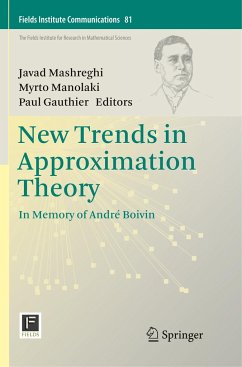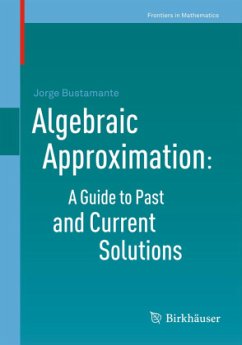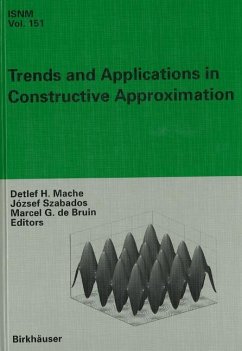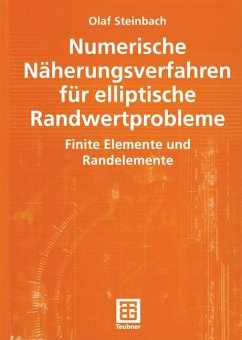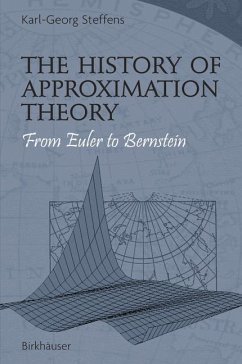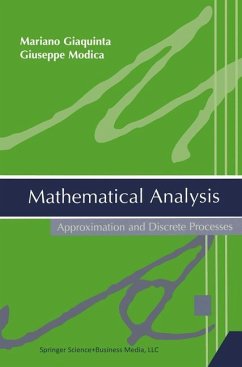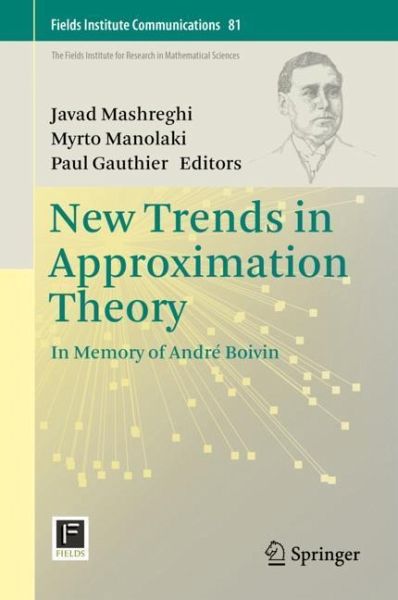
New Trends in Approximation Theory
In Memory of André Boivin
Herausgegeben: Mashreghi, Javad; Manolaki, Myrto; Gauthier, Paul

PAYBACK Punkte
36 °P sammeln!
The international conference entitled "New Trends in Approximation Theory" was held at the Fields Institute, in Toronto, from July 25 until July 29, 2016. The conference was fondly dedicated to the memory of our unique friend and colleague, André Boivin, who gave tireless service in Canada until his very last moment of his life in October 2014. The impact of his warm personality and his fine work on Complex Approximation Theory was reflected by the mathematical excellence and the wide research range of the 37 participants. In total there were 27 talks, delivered by well-established mathematic...
The international conference entitled "New Trends in Approximation Theory" was held at the Fields Institute, in Toronto, from July 25 until July 29, 2016. The conference was fondly dedicated to the memory of our unique friend and colleague, André Boivin, who gave tireless service in Canada until his very last moment of his life in October 2014. The impact of his warm personality and his fine work on Complex Approximation Theory was reflected by the mathematical excellence and the wide research range of the 37 participants. In total there were 27 talks, delivered by well-established mathematicians and young researchers. In particular, 19 invited lectures were delivered by leading experts of the field, from 8 different countries.
The wide variety of presentations composed a mosaic of aspects of approximation theory, highlighting interesting connections with important contemporary areas of Analysis. Primary topics discussed include application of approximation theory (isoperimetric inequalities, construction of entire order-isomorphisms, dynamical sampling); approximation by harmonic and holomorphic functions (especially uniform and tangential approximation), polynomial and rational approximation; zeros of approximants and zero-free approximation; tools used in approximation theory; approximation on complex manifolds, in product domains, and in function spaces; and boundary behaviour and universality properties of Taylor and Dirichlet series.
The wide variety of presentations composed a mosaic of aspects of approximation theory, highlighting interesting connections with important contemporary areas of Analysis. Primary topics discussed include application of approximation theory (isoperimetric inequalities, construction of entire order-isomorphisms, dynamical sampling); approximation by harmonic and holomorphic functions (especially uniform and tangential approximation), polynomial and rational approximation; zeros of approximants and zero-free approximation; tools used in approximation theory; approximation on complex manifolds, in product domains, and in function spaces; and boundary behaviour and universality properties of Taylor and Dirichlet series.





